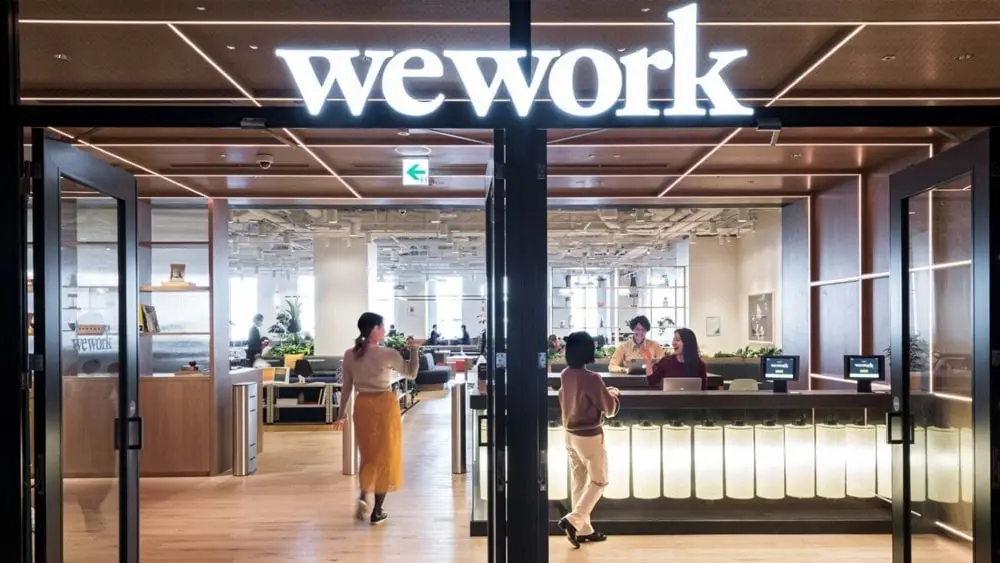
The recent bankruptcy filing of WeWork, the shared office space company once valued at $47 billion, offers a sobering lesson for startup founders tempted by packaging traditional business models as earth-shattering ideas.
Michael Burtov
Although I generally like to talk about how great disruption is in the innovation world, WeWork serves as a great lesson to founders that some business models are still very traditional and can be fatally undermined by flawed economics.
In 2010, WeWork set out to “elevate the world’s consciousness” by transforming office real estate, and went on to raise over $22 billion in funding from the who’s-who of Silicon Valley. The problem, however, was its business model.
At its core, WeWork was a low-margin arbitrage business dependent on fickle tenant revenue. Yet WeWork was positioned as a tech startup, and called for lavish spending and breakneck global expansion. This disconnect was a ticking time bomb.
From the start, WeWork positioned itself more as an innovative tech disruptor than a property management company. It used tech lingo, attracted venture capital, and hired young coding talent. The founders spoke of “elevating consciousness” through office design.
But while companies like Uber and Airbnb were true tech pioneers, WeWork merely put a hip veneer on the well-worn idea of shared workspaces. Behind its cutting-edge high-tech image, WeWork was a decidedly old-school commercial real estate company and this attempt to force a square peg into a round hole was its downfall.
Out of control spending
Buoyed by massive venture funding, WeWork recklessly spent like a hot tech startup. Lavish company retreats, exorbitant executive perks, and breakneck expansion all bled cash but boosted the valuation narrative by exploiting the false premise that they were a tech innovator.
While cash-burn makes sense for developing new software, it was catastrophic for a real estate company with hard asset costs. WeWork expanded its long-term lease liabilities so rapidly that it became a death sentence if revenue ever declined.
The mismatched economics became a glaring problem when WeWork filed for a 2019 IPO to raise more cash. The S-1 filing revealed huge losses, self-dealing by executives, and flawed metrics.
Investors balked at the $47 billion valuation. The IPO was withdrawn and the CEO was ousted. Four years ago WeWork’s valuation plummeted to $8 billion and now it’s bankrupt.
You can put lipstick on a pig, but it’s still a pig
WeWork positioned itself as a tech disruptor when it was fundamentally a real estate company. Top management succeeded in fooling themselves and investors into thinking that innovation was a core feature. Now, WeWork’s failure offers many lessons for startups.
Although I support innovation economy startups, not every company needs to be innovative. Even though it’s tempting to “think different,” it’s important to realize that the vast majority of new companies are not startups, but rather, small businesses.
Lately, I’ve been seeing more and more small businesses trying to position themselves as innovators, but they generally fail miserably as they’re very different types of companies.
You should know your true core business and build your branding, positioning and messaging around that truth. Based on the experience of the WeWork fiasco, here’s some advice for founders:
- WeWork’s lavish spending and breakneck expansion were enabled by ill-gotten VC money but masked fatal underlying flaws. If you run a traditional business then you should ensure that growth plans are supported by solid unit economics.
- Watch cash flow closely. WeWork’s huge losses and cash burn required constant new investment to sustain its valuation narrative. But the cash demand became unsustainable. Obsessively monitor your cash flow.
- Expect reality to catch up eventually. WeWork was able to sustain its tech darling image for a while despite the fundamentals. But eventually the realities of its business could no longer be obscured. Base your valuation and projections on realistic assessments.
- Maintain sound financial practices. WeWork used questionable metrics, related party deals, and lacked financial discipline. Adhere to proper accounting, governance and financial management.
- Match your business model to market conditions. WeWork kept expanding into a weakening office market instead of cutting costs. Pivot your model to adapt to changing market realities.
- My main takeaway is not to buy into your own hype and lose sight of the real economics and constraints of your business. Innovative branding needs to be backed up by innovative capabilities and financial rigor.
The rise and fall of WeWork illustrates the folly of disguising a traditional business as a tech disruptor. While software can be funded into profitability, old-economy businesses with hard assets and liabilities need positive economics early on. WeWork shows the danger of gaping disconnects between positioning and reality.
For founders, the lessons are clear. Innovative positioning requires an innovative business model and metrics. It’s fine to disrupt old industries with new tech, but know the inherent constraints of the business. And don’t outrun your economics. WeWork’s desire to be the next Uber blinded it to the basic real estate realities that eventually killed it. Be honest about what business you’re actually in.



